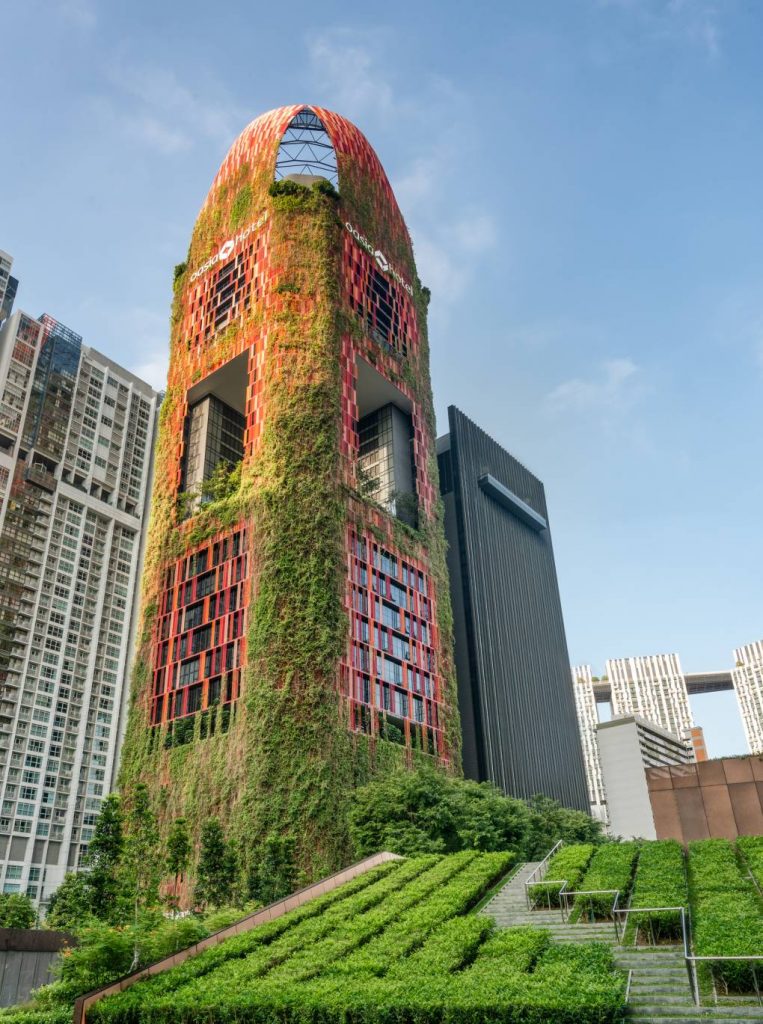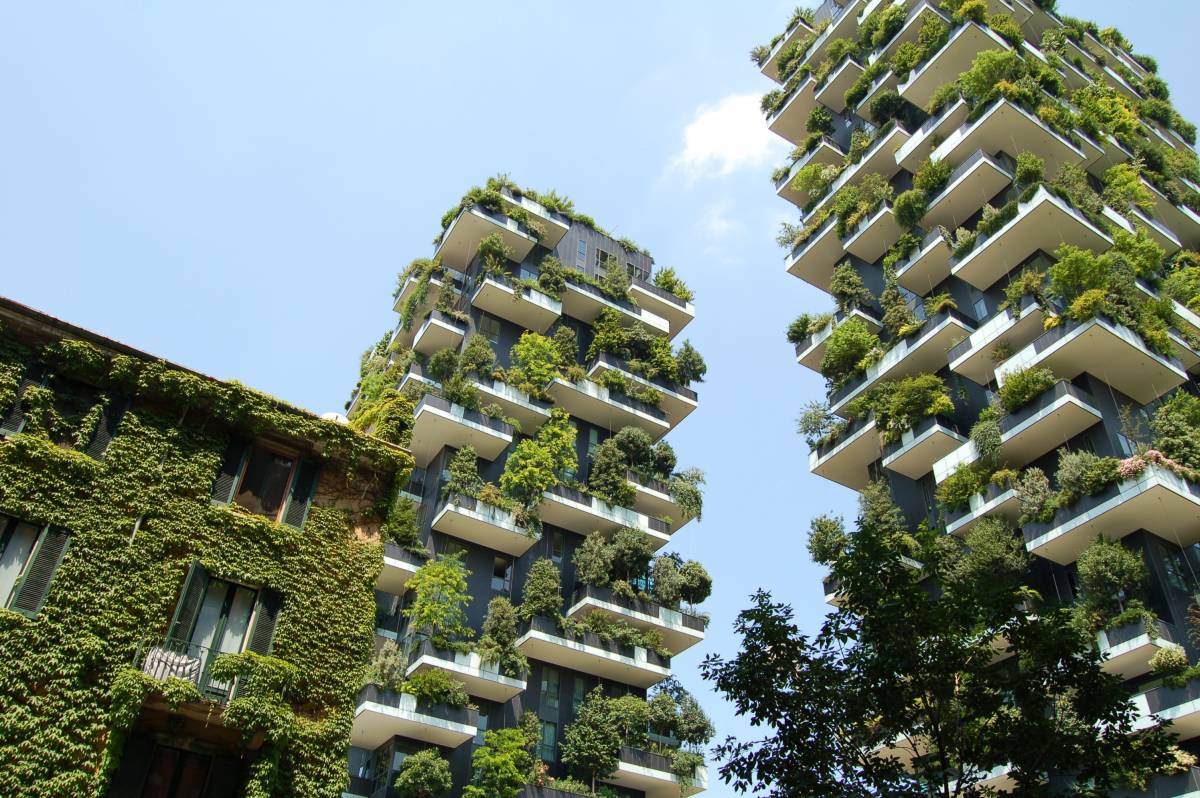In times of polarizing opinions and ongoing political debate, it’s slightly less controversial to believe that the trajectory of climate change isn’t in the best interest of humans (or any kind of life on this planet).
Our work is certainly cut out for us if we’re to keep climate change in check over the long-term. But change must start with action. And hospitality is one much-needed sector in which strides in energy and waste need to happen. Fortunately, guests are helping to fuel hoteliers’ motivations.
Last month, Booking.com released its 2019 Sustainable Travel Report, finding that 72 percent of global travelers believe that we must travel sustainably to save the planet for future generations.
In a wonderfully circular process, it is travel itself that inspires people to travel more sustainably: in 2018, 60 percent of travelers indicated that they found the beautiful natural sights as their inspiration to explore the world with an environmental conscience. Hotels worldwide are taking note of this trend, and developing a plethora of sustainable practices to quench their clients’ thirst for green travel.
Here are 9 eco-friendly hotel trends to look out for on your travels:
1. Urban Beekeeping
Hotels all over the world are installing apiaries (a collection of beehives) on their roofs, terraces, and grounds. It’s a win-win-win—for the bees, hoteliers, and guests. Bees flourish in these locally-run communities, because there’s a total lack of pesticides; hoteliers benefit from contributing to the budding “environmentally friendly” narrative in hospitality, and by having a part to play in saving the bees. And guests? Well, they get an endless supply of fresh, delicious honey.

2. Plastic Reduction
Plastic is getting a bad rap these days, with good reason. Disturbing reports are emerging, declaring most of our drinking water is contaminated with plastic. Last year, Bali had to declare a “garbage emergency” because of the amount of plastic washing up on a four-mile stretch of beach on the island’s west coast.
We’re (finally) realizing the devastating effects plastic has on our health and our planet (the two, after all, are interrelated)—and hotels all over the world (with hospitality giants Hilton and Marriott leading the pack) are taking action. Those single-use guest slippers wrapped in plastic? Gone. Plastic straws, bottles, and laundry bags? Also gone. And those little plastic shampoos and conditioners? They’re cute, but not so adorable for the future of our planet—refillable glass containers are the way to go. Sayonara, plastic. Your time is up.
3. Eco-Friendly Design & Construction
LEED (Leadership in Energy and Environmental Design) is—excuse the pun—the leading green building rating system in the hotel industry. “Green building” is (according to LEED’s official website) the practice of “designing, constructing, and operating buildings to maximize occupant health and productivity, use fewer resources, reduce waste and negative environmental impacts, and decrease life-cycle costs.”
Many major hotel chains (Fairmont, Kimpton, ITC, and Marriott, to name a few) have multiple LEED-certified establishments and are in the process of developing more. A LEED certification makes for healthier indoor spaces, happier guests, and the enhancement of a hotel’s brand (going green isn’t just ethical, guys—it’s cool).
4. Energy Reduction
Switching to LED or CFL (compact fluorescent lamp) lighting results in significant energy savings for hotels. After Marriott changed their lighting back in 2006, they saved almost $6 million in the following year alone, and reduced their greenhouse gas emissions by 70,000 tons. Hotels are also leveraging increasingly affordable solar energy to reduce their operating costs. Energy reduction’s dual economic-ecological advantage makes the change a no-brainer for most hoteliers.
5. Waste Control
Because waste disposal costs are likely to increase—what with diminishing landfill space and increasing collection costs—many hotels are making small but significant changes to diminish their waste production. Small steps like putting recycling bins in guest rooms, using biodegradable bags / cleaning products, and sorting through waste all add up to big change.
6. Notes to Guests
Hotels are also starting to inform their guests about the steps they’re taking to lessen their ecological footprint. The Marmara Hotels chain in Turkey, for instance, uses social media to inform their guests about the hotels’ electricity reduction policies (hot water is produced using solar energy, LED bulbs are in use hotel-wide, and there is always a power outage in unused areas and rooms). These small reminders are a little nudge for guests to behave in a more environmentally-conscious manner both during their stay and long after they’ve checked out.
7. Farm-to-Fork Dining
Hotels are beginning to embrace locally sourced produce to cater to travelers’ increased desire for environmentally sustainable hospitality. On top of being more nutritious and better-tasting than factory food, local produce reduces “food miles” (the distance imported food travels, from production to consumption), which significantly decreases fossil fuels. Of course, food miles are not the whole story. To truly make progress, we need to reduce our consumption of animal products—whether we’re on vacation or at home—as this TedTalk discusses below.
8. Adding Greenery
Some hotels are taking the green trend quite literally, adorning their buildings with rooftop gardens or massive indoor (and outdoor) plant walls.
Singapore, whose world-famous green hotels have become synonymous with the city itself, is leading the trend. The self-proclaimed “Garden City” is weaving nature into its urban planning, and its hotels are no exception. Every new development must include plant life, be it in the form of vertical plant walls, green roofs, or ivy-covered walls. Park Royal boasts an indoor 300-meter (roughly 985 feet) garden walk, and the Oasia Hotel Downtown is covered top-to-bottom in green creepers.
Many of Singapore’s hotels keep a large percentage of their site uncovered, to reduce energy consumption and provide a unique natural experience. Here’s hoping that hotels worldwide catch Singapore’s drift, and start taking the term “green hotel” seriously—and literally.

9. Ecological Partnerships
A great way to streamline sustainability is to partner with established environmental organizations. Kimpton Hotels, for example, has partnered with Clean the World, which collects soap discarded by guests, recycles it into new bars, and distributes it to vulnerable communities worldwide—thereby preventing millions of hygiene-related deaths each year. The Joie de Vivre hotel chain also partners with Clean the World, as well as the Environmental Protection Agency (EPA) and AlGore.com.
Because environmental organizations are obviously well-versed in green practices, they can fast-track and optimize hotel’s efficiency vis-à-vis sustainability. In return, hotels can bring more awareness to the great work that these organizations are conducting worldwide.
Those who travel the world should care about the world. So much of travel is tied to accommodation; it’s important that travelers actively seek out green hotels. Having the right attitude is essential to foster change. But what really matters is where we choose to spend our money.
By supporting eco-friendly practices, more hotels will get on board — addressing the thousands of decisions necessary to achieve a more sustainable operation with newfound zeal.

Image Credits:
Featured photo: “Bosco Verticale” by Chris Barbalis via Unsplash
“Native Bee House” by Melinda Young via (CC BY-NC-ND 2.0)
“Lush Facade of Oasia” courtesy of Oasia Hotel Downtown, Singapore
